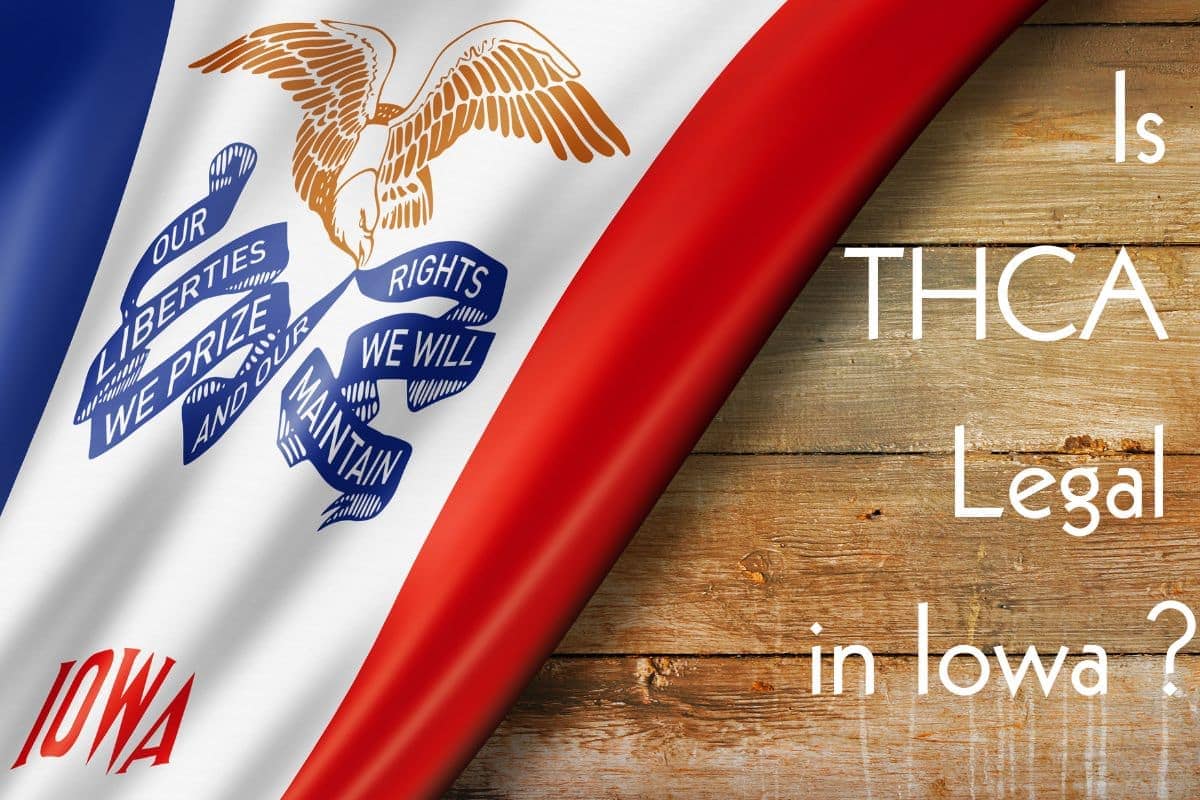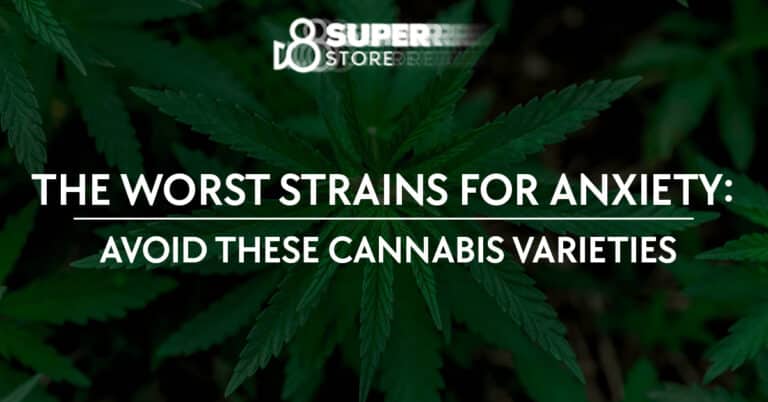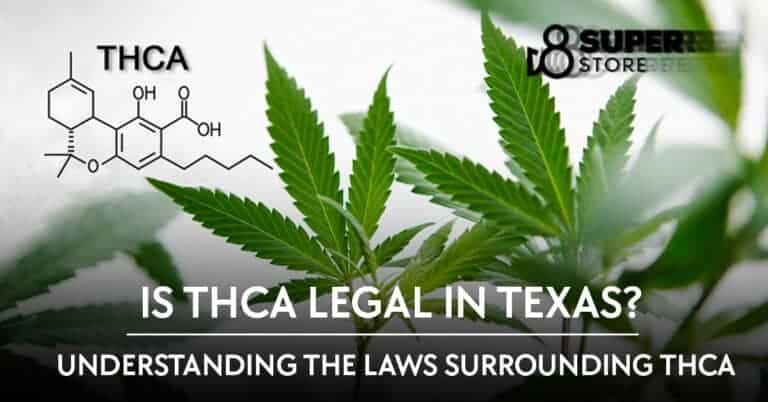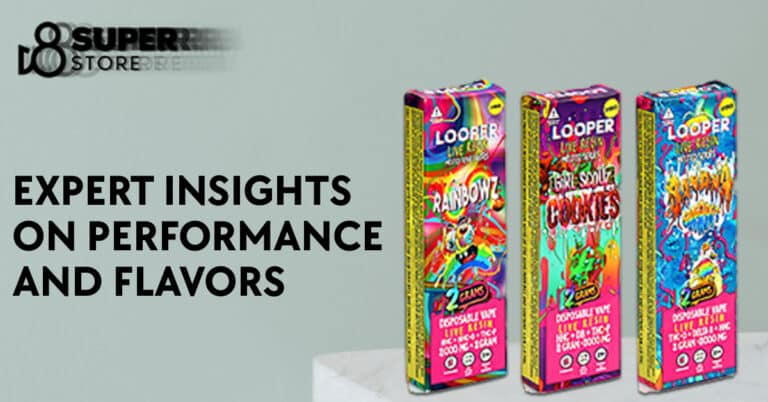Is THCa Legal in Iowa: An Overview of State Regulations
Exploring Iowa’s weed laws is like stepping onto an alien planet, where **tetrahydrocannabinolic acid (THCa)** is the main attraction. Think of THCa as a quiet caterpillar, ready to morph into the show-stopping butterfly we call delta-9-tetrahydrocannabinol (THC) – yep, that’s the magic in marijuana that shoots you straight to the stars. THCa just chills, not stirring up any ruckus, until heat works its magic and poof! It changes. This magical change, known as decarboxylation, is a must-know for anyone in Iowa or seriously into cannabis. Forget about boring legal mumbo-jumbo; this is your golden ticket to unlocking the mysteries of these incredible compounds. Why wait? Digging into these secrets could completely change the game for anyone with a keen interest or deep dive into the cannabis universe.
Iowa’s laws regarding cannabis and its derivatives are specific, and keeping informed about these regulations is crucial for compliance. The distinction between legal hemp-derived products and illegal marijuana products in Iowa largely centers around the amount of delta-9-THC present. In accordance with the Farm Bill, hemp products must contain less than 0.3% THC on a dry weight basis to be considered legal at the federal level. However, the legality of THCa is less clear, as state laws can vary and interpretations of federal law may differ.
Your awareness of the legality of THCa in Iowa hinges on its classification and the state’s specific cannabis laws. State regulations often align with federal guidelines, but it’s important to note that the legal status is dynamic and can be subject to change due to new legislation or interpretations of law by state authorities. For the most current and accurate information, consulting with a legal expert or state health department officials in Iowa will provide you with a thorough understanding of the present legal situation regarding THCa and cannabis-derived products.
The Legal Status of THCa in Iowa
When considering the legality of tetrahydrocannabinolic acid (THCa) in Iowa, it’s essential to navigate the intricate landscape of cannabis-related regulations. This section will delineate the current legal framework.
Understanding THCa
THCa is a non-psychoactive cannabinoid found in raw and live cannabis. As the non-activated version of THC, THCa converts to THC when decarboxylated, often through heat. This chemical process leads to the psychoactive effects associated with marijuana.
THCa vs. THC: Legal Distinctions
| Characteristic | THCa | THC |
|---|---|---|
| Chemical Structure | Non-psychoactive cannabinoid found in raw cannabis | Psychoactive cannabinoid formed through decarboxylation of THCa |
| Form | Found in the raw cannabis plant | Formed after decarboxylation (heating) of THCa, often through smoking, vaping, or cooking |
| Psychoactivity | Non-psychoactive | Psychoactive; produces the “high” associated with cannabis |
| Presence in Cannabis | Abundant in live, fresh cannabis | Present in aged or heated cannabis, as a result of THCa conversion |
| Decarboxylation | Required for conversion to THC; occurs with heat or time | Spontaneously occurs over time, but can be accelerated with heat |
| Medical Benefits | Anti-inflammatory, neuroprotective | Analgesic, antiemetic, appetite stimulant, potential neuroprotective effects |
| Legality | Not regulated as a controlled substance; present in hemp | Regulated as a controlled substance in many places due to psychoactive effects |
| Consumption Forms | Consumed in raw cannabis juice, some tinctures | Consumed through smoking, vaping, edibles, tinctures, and other heated forms |
| Molecular Formula | C22H30O4 | C21H30O2 |
| Molecular Weight | 358.48 g/mol | 314.45 g/mol |
In the United States, THC is listed as a Schedule I controlled substance under the federal Controlled Substances Act. This classification makes THC-containing cannabis products federally illegal. However, THCa itself has not been explicitly scheduled under the Controlled Substances Act, leading to a gray area in legal distinctions. It is the presence of Delta-9 THC that often determines a cannabis product’s legality.
Iowa State Laws on THCa
Your understanding of Iowa state laws pertaining to THCa is crucial. Iowa’s controlled substances law mirrors federal guidelines, where THC is a regulated compound. Legal consequences depend on whether THCa is determined to be a separate entity from THC or not. Since THCa can convert to THC, which is a controlled substance, possessing THCa could potentially fall under state laws governing illicit cannabis if it is being considered in its decarboxylated form.
While specific legislations directly addressing THCa are lacking, the state’s adherence to federal law indicates a cautious approach. The possession, sale, or use of substances that can lead to THC production may be subject to legal scrutiny under Iowa’s controlled substances regulations. Therefore, while hemp and hemp-derived products with less than 0.3% Delta-9 THC are considered legal, the status of THCa remains complex and potentially implicates Iowa’s stringent cannabis laws.
Regulatory Overview
Understanding the legal status of THCa in Iowa requires examining both federal and state regulations. This will help you navigate the complex landscape of cannabis law as it pertains to hemp-derived products, including the impact of the federal Farm Bill on state legislation.
Federal Regulation of Cannabis
The federal government classifies “marihuana” as a Schedule I substance under the Controlled Substances Act (CSA), which includes all parts of the cannabis plant, but excludes hemp. With the passing of the 2018 Farm Bill, hemp and hemp-derived products containing less than 0.3% delta-9-tetrahydrocannabinol (THC) are no longer controlled substances federally. Consequently, tetrahydrocannabinolic acid (THCa), a non-psychoactive precursor to THC found in the raw cannabis plant, isn’t regulated by the DEA if derived from legally produced hemp. However, it is crucial to recognize that the conversion of THCa to THC through decarboxylation could potentially alter its legal status.
Iowa Cannabis Laws
In Iowa, the state’s law aligns with federal guidelines: cannabis with more than 0.3% THC is illegal. Iowa has a medical marijuana program, but it is highly restrictive, allowing only CBD products with less than 0.3% THC for registered patients. Concerning THCa, there is ambiguity, since it is not explicitly mentioned in the state statutes. This may lead to different interpretations of its legality, as THCa can convert into THC, a controlled substance in Iowa.
Hemp and Hemp-Derived Products in Iowa
Following the federal Farm Bill, Iowa passed the Iowa Hemp Act, which allows for the production of hemp and hemp-derived products. As you consider the legality of THCa in Iowa, remember that it must be sourced from hemp containing no more than 0.3% THC. This means that products such as hemp oils, seeds, and extracts are legal as long as they adhere to this THC threshold. Keep in mind, the Iowa Department of Agriculture and Land Stewardship oversees the regulation of hemp production in the state, which must align with federal standards to maintain legality.

Possession, Use, and Sale
When it comes to THCa and THC in Iowa, you must navigate laws that differentiate between these cannabinoids and their legality. Be aware that while THCa might be in a legal gray area, THC often is not.
Possession Limits and Penalties
In Iowa, possession of any amount of cannabis containing THC carries legal consequences. If you’re caught with:
- First Offense: Up to 6 months in jail, and/or a fine ranging from $315 to $1,875.
- Subsequent Offenses: Penalties increase, potentially resulting in greater fines and prison time.
Note: THCa as a non-psychoactive compound can fall under different regulations, but possessing THC-rich cannabis is subject to the laws above.
Using THCa and THC Products
The use of THCa in products that don’t contain delta-9-THC might be sold legally in some circumstances. However, using THC products in Iowa is restricted to individuals who are registered in the medical marijuana program and meet specific medical conditions.
Sale of Cannabis Products
Selling cannabis products, including those that predominantly feature THCa, is illegal in Iowa. The state’s stringent regulations on cannabis production and distribution reflect federal law. This also means that:
- Unauthorized sale of THC products can result in felony charges.
- Penalties include imprisonment for several years and substantial fines.
Remember, while THCa is a precursor to THC and may be found in legal products, THC itself is strictly regulated. Ensure you understand the difference to comply with Iowa state laws.
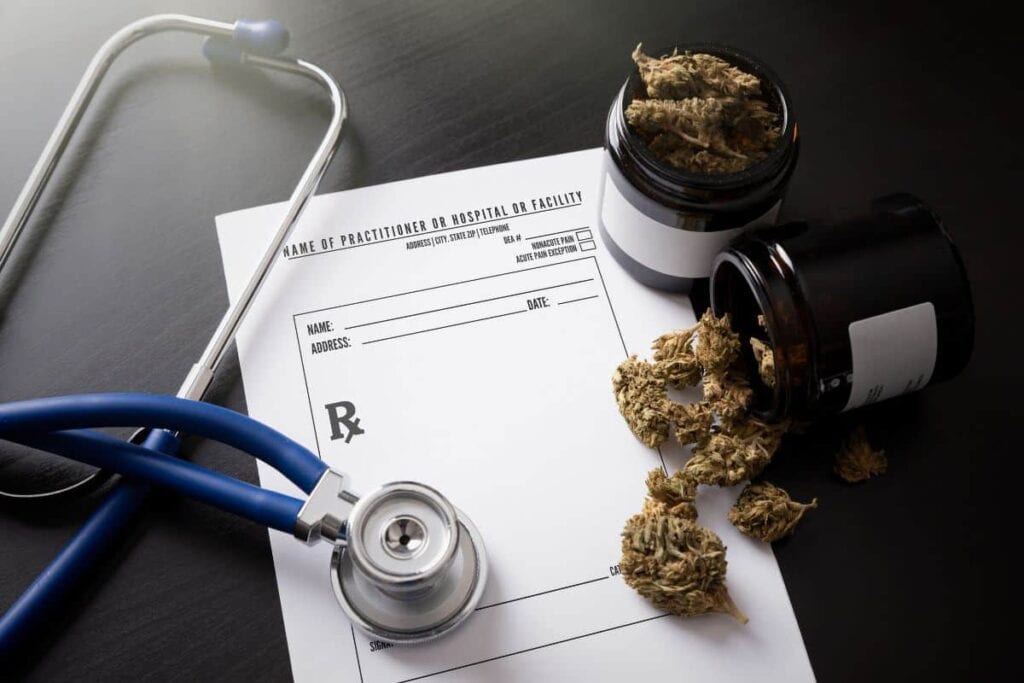
Medical Cannabis in Iowa
In Iowa, participation in the medical marijuana program requires meeting specific eligibility criteria and compliance with state regulations. As a patient, you need to be aware of the types of medical cannabis products available and understand how to lawfully access them.
Qualifying for Medical Use
To qualify for medical use of cannabis in Iowa, you must be diagnosed with a qualifying condition by a healthcare practitioner. These conditions include, but are not limited to, cancer, multiple sclerosis, seizures, AIDS or HIV, Crohn’s disease, and chronic pain. Upon approval, you’ll receive a registration card, making you a legal participant in the Iowa Medical Cannabidiol Program.
Patient Access and Restrictions
Once registered, your access to medical cannabis is subject to strict regulations. THCa and other cannabinoids are available, but Iowa’s program limits the THC content in products. You’re allowed to obtain up to 4.5 grams of THC over a 90-day period unless the certifying healthcare provider prescribes a specific amount based on your condition. It’s essential to carry your registration card at all times to avoid legal issues.
Medical Cannabis Products
The range of products in Iowa includes orally consumed forms such as capsules, tinctures, and liquids. The state’s law particularly excludes products designed for smoking. You must purchase your medical cannabis from licensed dispensaries throughout the state, ensuring the product meets quality standards for medical use. It’s important to note that while cannabis products with THCa are permitted, such products must not exceed the THC limits set by Iowa’s medical marijuana program.
Consumer Information
In Iowa, navigating the legality and details of cannabidiol (CBD) and tetrahydrocannabinolic acid (THCa) products requires understanding various types, reading labels accurately, and knowing how to purchase and consume them responsibly.
Product Varieties and Types
In Iowa, you’ll find a range of hemp-derived products containing THCa and CBD. These include:
- Flower: Raw hemp or cannabis buds for smoking or vaping.
- Edibles: Gummies, chocolates, and baked goods infused with cannabinoids.
- Tinctures: Liquid extracts typically administered under the tongue.
- Topicals: Creams and balms for skin application.
Be aware that even though THCa is not psychoactive, it can convert into delta-9-THC (a controlled substance) when heated.
Understanding Labels and Content
It’s essential to read product labels to understand the cannabinoid content, especially THC levels, to ensure compliance with local laws. Look for:
- Total THC: Some products list total potential THC, which accounts for the conversion from THCa to THC.
- CBD and other cannabinoids: Check concentrations to make sure they meet your needs.
- Isomers: Some labels might specify the presence of THC isomers like delta-8.
Always verify that THC content is within the legal limit to avoid purchasing a product that is considered controlled.
Purchasing and Consumption
When buying CBD products in Iowa, whether those are smokable, edibles, or tinctures, consider these points:
- Online vs. Local: You can purchase hemp-derived products either in local dispensaries or through online retailers. Ensuring the vendor is reputable is key.
- Legal Age: You must be of legal age to buy cannabinoid products.
- Consumption: Use these products responsibly, knowing that consumption methods like smoking or vaping have immediate effects, while edibles can take longer to kick in.
Remember, stay updated with Iowa’s state laws to ensure that all products, especially those with THCa content, are consumed within legal boundaries.
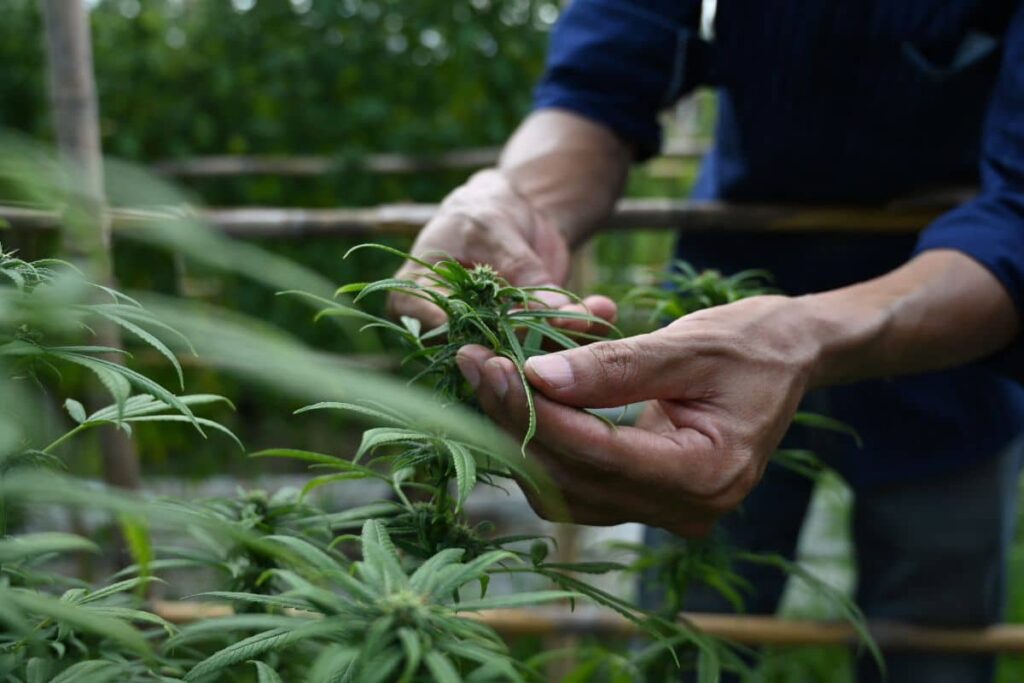
Implications for Cultivators and Distributors
Understanding the legal landscape for THCa in Iowa is essential if you’re involved in the cultivation or distribution of cannabis products. It determines how you navigate the complexities of compliance with state regulations and the commercial challenges in the market.
Cultivation Regulations
When you’re cultivating cannabis plants in Iowa, distinguishing between hemp and marijuana is vital because of their differing legal statuses. Hemp, which contains 0.3% or less THC, is legal to cultivate under federal and state law, provided you comply with specific licensing requirements. The focus on THCa, the non-psychoactive acidic precursor to THC, places an additional layer on these regulations since hemp-derived cannabinoids like Delta-8 THC might be synthesized from THCa. You must ensure your crop’s THC levels remain within the legal threshold both pre-harvest and post-processing.
Distribution and Retail Challenges
For distributors and retail dispensaries, the challenge lies in navigating the sale and distribution of products that may contain THCa. While licensed dispensaries are allowed to distribute cannabis products, this permission is under tight constraints to deter potential misuse. You must adhere to state limits and ensure that the products sold, especially those relating to cannabis plants and derivatives, do not lead to intoxication. Selling THCa in its raw or non-synthesized form may be acceptable, but once converted to THC, it could fall under different regulatory measures, affecting your business operations.
By staying informed and rigorous about compliance, you as cultivators and distributors can operate successfully within Iowa’s legal framework concerning cannabis and its derivatives.
Frequently Asked Questions
When navigating the complexities of THCa legality, you must understand both federal regulations and state-specific laws. Access to accurate and up-to-date information will ensure your actions remain within legal bounds.
What is the legal status of THCa on the federal level in the United States?
Federally, THCa is not listed under the Controlled Substances Act; however, because it is an acid precursor to THC, it may be subject to scrutiny under the Federal Analogue Act if intended for human consumption.
Can the possession or use of THCa lead to a psychoactive effect?
THCa itself does not produce psychoactive effects like THC does. It needs to be decarboxylated, a process involving heat, to convert to THC, which is psychoactive.
What are the regulations surrounding the shipping of THCa within the U.S.?
Shipping THCa across state lines could be problematic if it’s perceived as a THC analogue. It’s essential to comply with both the federal laws and the specific regulations of each state involved in the transaction.
How does Iowa’s stance on THCa compare with neighboring states like Minnesota and Wisconsin?
THCa is in a gray area in Iowa due to its relationship with THC. Unlike Iowa, where medicinal cannabis is highly regulated, Minnesota’s program is more inclusive. Wisconsin remains restrictive, only allowing CBD products with no psychoactive components.
Is it possible to fail a drug test due to the presence of THCa in the body?
Although THCa itself is non-intoxicating, standard drug tests often detect THC, which your body may produce from THCa. If THCa in your system converts to THC, this could result in a positive drug test.
In the context of cannabinoids, how does the legality of THCa relate to that of HHC in Iowa?
While THCa’s legal status in Iowa is inseparable from its connection to THC, HHC (hexahydrocannabinol) is a semi-synthetic cannabinoid with unclear legal standing. As with any cannabinoid, check Iowa’s latest regulations to avoid legal issues.

